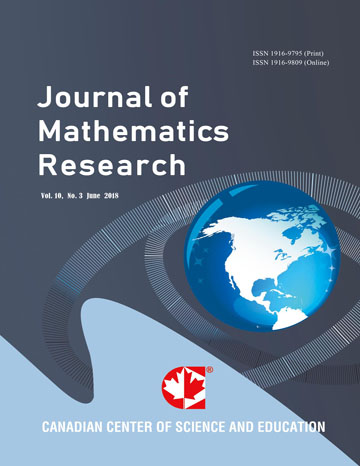Prime Number Theorem and Goldbach Conjecture
- Pingyuan Zhou
Abstract
Let Ln denote the largest strong Goldbach number generated by the n-th prime Pn, in this paper, we present that there are approximate bounds of Ln such that 2nlogn + 2nloglogn – 2n < Ln < 2nlogn + 2nloglogn for n ≥ 20542, based on results about prime number theorem. Let ξ(n) = Ln/2 denote the number of strong Goldbach numbers generated by Pn, equivalently, there are approximate bounds of ξ(n) such that nlogn + nloglogn – n < ξ(n) < nlogn + nloglogn for n ≥ 20542. The approximate bounds of Ln have been verified for 20542 ≤ n ≤ 400000000, equivalently, the approximate bounds of ξ(n) have also been verified for 20542 ≤ n ≤ 400000000. It is obvious that if it can be proven that there is an integer k > 0 such that bounds of 2Pn can be thought as approximate bounds of Ln for all n > k, or equivalently, there is an integer k > 0 such that bounds of Pn can be thought as approximate bounds of ξ(n) for all n > k, then Goldbach conjecture is true. We also considered another approach to the conjecture, that is, if it can be proven by introducing Li(n) that there are infinitely many Goldbach steps, then Goldbach conjecture is true.
- Full Text:
 PDF
PDF
- DOI:10.5539/jmr.v16n3p1
Index
- ACNP
- Aerospace Database
- BASE (Bielefeld Academic Search Engine)
- Civil Engineering Abstracts
- CNKI Scholar
- DTU Library
- EconPapers
- Elektronische Zeitschriftenbibliothek (EZB)
- EuroPub Database
- Google Scholar
- Harvard Library
- IDEAS
- Infotrieve
- JournalTOCs
- MathGuide
- MathSciNet
- Open policy finder
- RePEc
- ResearchGate
- Scilit
- Technische Informationsbibliothek (TIB)
- The Keepers Registry
- UCR Library
- Universe Digital Library
- WorldCat
Contact
- Sophia WangEditorial Assistant
- jmr@ccsenet.org
